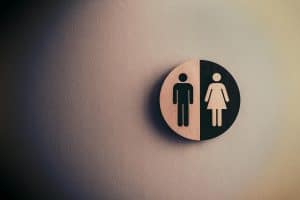Human bodies are amazing. Described as a feat of biological engineering. They are flexible, enduring, sensory and agile.
We also have dozens of erogenous zones, which means our bodies are built for pleasure.
In other words, we are a pleasure playground.
And pleasure matters.
Just like any playground, where some people will enjoy the thrill of a rollercoaster and others prefer the merry-go-round, some zones will feel better being explored than others.
Sometimes these areas will feel less sensitive or more sensitive depending on our internal and external world (also known as the bio-psych-socio-cultural approach).
This is important for context, it’s imperative to consider if you want to understand your desire, or lack thereof.
A common scenario for many people might sound like this: work is busy and stressful, and romantic relationship have ups and downs. If there are children in the dynamic, then their needs come first, which can create the feeling of being touched out and exhausted by the end of the day. Extended family might also be concern – trying to fit in a social life and see friends is important yet also tiring, not to mention maintaining a self-care regime.
In these scenarios, intimacy and desire takes a backseat too often.
Waiting for a partner to initiate and negative self-beliefs can result in not engaging with one’s body and not remembering what pleasure feels like.
Whilst self-pleasure can come with a stigma, the happy hormones released (dopamine, oxytocin, endorphins, just to name a few) provide a benefit to the body, both physically and mentally.
This is why understanding your pleasure is a fantastic first step to better partnered sex.
If you can start to identify what will throw the brake on to engaging in pleasure, and what will help want you to engage, you are now mastering your dual control model when it comes to sexual desire!






